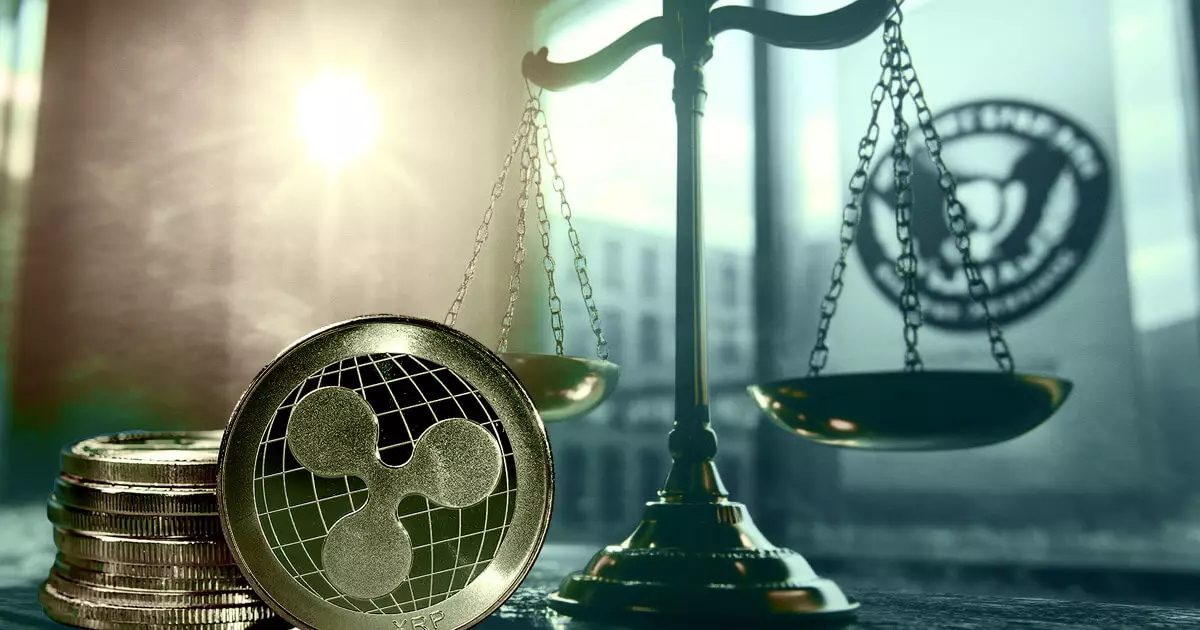In a tangled web of legal maneuvers, Ripple Labs faces continued scrutiny from the U.S. Securities and Exchange Commission (SEC) in a high-profile case that touches on the nuanced intersection of digital assets and securities law. On October 17, the SEC filed a Civil Appeal Pre-argument statement, marking yet another chapter in a lengthy legal saga. This filing aims to challenge certain components of Judge Analisa Torres’ prior rulings regarding Ripple’s sale of its native cryptocurrency, XRP. The legal back-and-forth illustrates not only the stakes involved for Ripple and its executives, Brad Garlinghouse and Chris Larsen, but also raises significant questions about regulatory oversight and the future of cryptocurrencies in the United States.
In her ruling last year, Judge Torres brought a nuanced perspective to the case by partially favoring Ripple. The court identified a critical distinction between XRP sales to retail investors on exchanges, which were deemed in compliance with U.S. securities laws, and the sales made to institutional investors, which were not. This bifurcation highlights a pivotal point in the legal discussions surrounding digital currencies, pointing to the inherent complexities that emerge when classifying new financial instruments under existing legal frameworks.
By affirming that XRP sales on digital platforms do not constitute securities transactions for retail investors, the ruling provided a glimmer of hope for Ripple and its supporters, suggesting a potential path for the cryptocurrency industry to operate with greater clarity. However, the ruling was not a complete victory for Ripple, as the court found that certain sales did violate regulations, indicating that compliance and legal responsibility remain crucial issues within the digital asset ecosystem.
The SEC’s filing to the U.S. Court of Appeals for the Second Circuit outlines its intent to contest aspects of the trial court’s judgment that favor Ripple. Particularly concerning are Ripple’s programmatic XRP sales on trading platforms and the distributions of XRP to various stakeholders, including employees. Moreover, the appeal seeks to hold Ripple executives accountable for their roles in these allegedly problematic sales, with the SEC accusing them of “aiding and abetting” these transactions.
This strategic pivot by the SEC is noteworthy for its focus on de novo review, implying that the appellate court will reevaluate the legal questions without being bound by the earlier ruling. Legal experts point out that this could lead to a more stringent interpretation of what constitutes compliance within the realm of cryptocurrency transactions—a chilling potential for innovation and development in the sector.
In response to these unfolding events, Ripple’s Chief Legal Officer, Stuart Alderoty, underscored a key aspect of the ongoing discourse: the ruling that deems XRP as not being a security remains uncontested. Alderoty’s assertion serves to fortify Ripple’s standing, indicating that while the appeal might present challenges, the established legal precedent that XRP is not a security stands firm. This aspect may serve as a crucial focal point for Ripple as they prepare a counter-appeal to address the SEC’s challenges.
The legal landscape surrounding cryptocurrencies is evolving rapidly, with regulatory bodies like the SEC grappling with enforcement and compliance in an industry that often outpaces traditional financial regulations. The outcome of this case could set significant precedents for how digital assets are treated in the context of securities laws, leading to potential repercussions that extend well beyond Ripple itself.
As the legal battle unfolds, it sheds light on the broader challenge of regulation in the cryptocurrency space. The SEC’s approach to enforcing existing securities laws on digital assets raises essential questions about innovation versus regulation. While safeguarding investors is a critical goal, an overly aggressive stance could stifle technological advancement and limit the competitive edge of U.S.-based cryptocurrency projects.
Moreover, as Ripple prepares for its future legal strategies, the cryptocurrency community watches closely. The outcomes of this case not only affect Ripple but could serve as a bellwether for other cryptocurrency projects facing scrutiny from regulatory bodies. With discussions of potential legislative frameworks brewing in Congress, the interplay between innovation and regulation remains delicately balanced.
The ongoing legal skirmish between Ripple and the SEC showcases the intricate dance between emerging technologies and established legal frameworks. It emphasizes the need for a coherent regulatory landscape that nurtures growth while protecting investors. As we await further developments, both Ripple and the broader cryptocurrency community remain poised to navigate the unpredictable waters of regulation.

